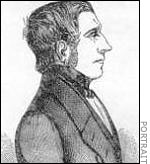 For those who care about ERISA participants and beneficiaries being able to find good counsel for their claims, the U.S. Supreme Court decision this morning in Hardt v. Reliance Insurance Co., No. 09-448 (U.S. May 24, 2010) is welcome news.
For those who care about ERISA participants and beneficiaries being able to find good counsel for their claims, the U.S. Supreme Court decision this morning in Hardt v. Reliance Insurance Co., No. 09-448 (U.S. May 24, 2010) is welcome news.
In a nearly unanimous opinion written by Justice Thomas (Justice Stevens wrote to concur in part), the Court held that:
A fee claimant need not be a “prevailing party” to be eligible for an attorney’s fees award under §1132(g)(1) [Section 502(g)(1)]. Interpreting the section to require a party to attain that status is contrary to §1132(g)(1)’s plain text. The words “prevailing party” do not appear in the provision. Nor does anything else in §1132(g)(1)’s text purport to limit the availability of attorney’s fees to a “prevailing party.” Instead, §1132(g)(1) expressly grants district courts “discretion” to award attorney’s fees “to either party.” (Emphasis added.) That language contrasts sharply with §1132(g)(2), which governs the availability of attorney’s fees in ERISA actions to recover delinquent employer contributions to a multiemployer plan. In such cases, only plaintiffs who obtain “a judgment in favor of the plan” may seek attorney’s fees.§1132(g)(2)(D). The contrast between these two paragraphs makes clear that Congress knows how to impose express limits on the availability of attorney’s fees in ERISA cases. Because Congress failed to include in §1132(g)(1) an express “prevailing party” requirement, the Fourth Circuit’s decision adding that term of art to the statute more closely resembles “invent[ing] a statute rather than interpret[ing] one.” Pasquantino v. United States, 544 U. S. 349, 359.
The case is interesting because it poses a common legal issue in ERISA litigation. The court, after pointing out problems with a plan administrator’s interpretation of plan terms, remands the case back to the company and the company ends up awarding the initially requested benefits to the employee.
 In 1843, Daniel M’Naghten (left) killed the secretary of the Prime Minister of England. Medical evidence introduced at his murder trial indicated that he suffered paranoid delusions, leading to his acquittal and eventually to judicial recognition of something like the modern insanity defense.
In 1843, Daniel M’Naghten (left) killed the secretary of the Prime Minister of England. Medical evidence introduced at his murder trial indicated that he suffered paranoid delusions, leading to his acquittal and eventually to judicial recognition of something like the modern insanity defense. 